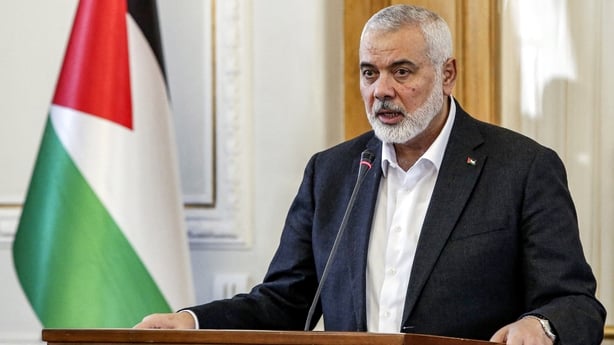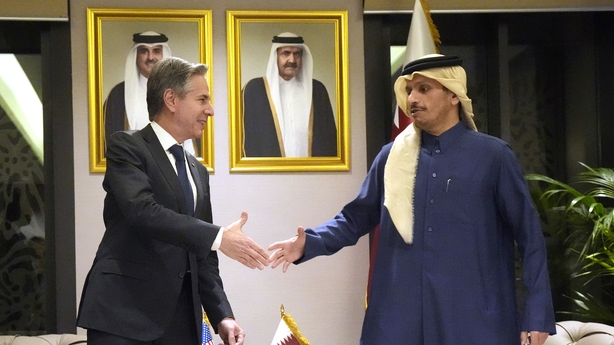What will this mean now?
It's the question that has been repeated ad nauseum this week in relation to events in the Middle East as fast-moving developments leave regional governments and groups as uncertain as the wider international community about where this crisis goes now.
US Secretary of State Antony Blinken has said several times already that he does not wish to guess what individual events mean for a possible ceasefire, implying that such speculation would be a fool's errand.
But what he has been clear about is a truce is the only hope of de-escalating a crisis which at times this week seemed to escalate by the hour.
The deaths of 12 young people at a football game in the Israeli-occupied Golan Heights at the start of the week began a chain of events which has brought this conflict to a new level.
Israel blamed Hezbollah, retaliating with a strike on its stronghold of Dahiyeh in southern Beirut that killed Fuad Shukr, a senior commander with the Iran-backed militant group.

Even as the fallout was being assessed, news that a strike in Tehran had killed Ismail Haniyeh, the Hamas political leader, sent more shockwaves through the region and raised more questions.
One of the first was "had Israel carried out the assassination?"
On that Israel was saying nothing with a government spokesperson declining to comment, though a picture on social media with the word 'eliminated' written across a photo of Haniyeh suggested that the many actors across the region blaming Israel for the death might have been right.
Given that Haniyeh had been involved in the multi-party ceasefire talks which have been under way for months now, one of the next questions was "has his death derailed the possibility of a truce?"
Qatar, one of the key mediators of the truce negotiations, was quick to respond with the country’s Prime Minister Sheikh Mohammed bin Abdulrahman Al Thani taking to social media to pose a question of his own.
"Political assassinations and continued targeting of civilians in Gaza while talks continue leads us to ask, how can mediation succeed when one party assassinates the negotiator on the other side?"

The announcement by Israel that it had killed the leader of Hamas' military wing Mohammed Deif in mid-July in Gaza - though the death was only confirmed on Thursday - added to the growing clamour of questions about what it would mean and what form would retaliation take?
Hezbollah, Hamas and Iran have all vowed revenge as Israel vows to be ready for any action that might be taken against it.
The concern now is how calibrated or otherwise any retaliation will be.
If it is a response that allows Israel not to respond directly but to continue feeling buoyed up by having taken out two key Hamas figures this week, then some kind of de-escalation may be possible.
But if any revenge attack involves a significant loss of life as Iran's proxies seek to prove they are not damaged or cowed by Israel’s ability to kill their key personnel, then further escalation looks likely if not inevitable.
Once again, the Middle East and the wider world is watching and waiting to see what the answer may be, and what further questions it will raise.

